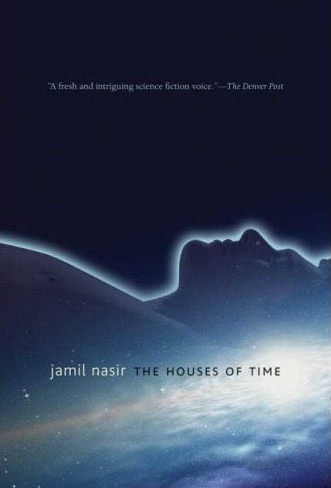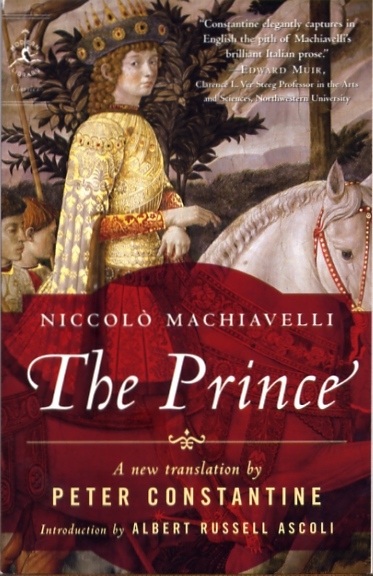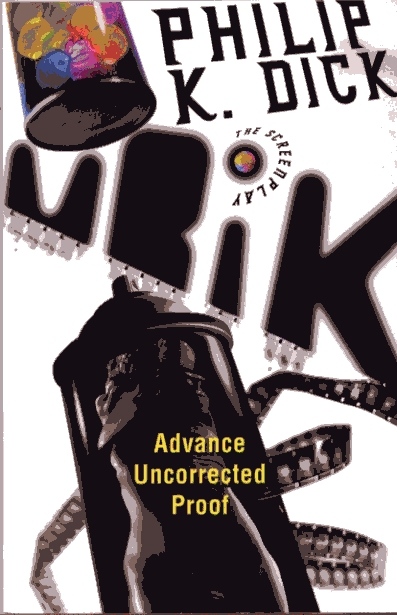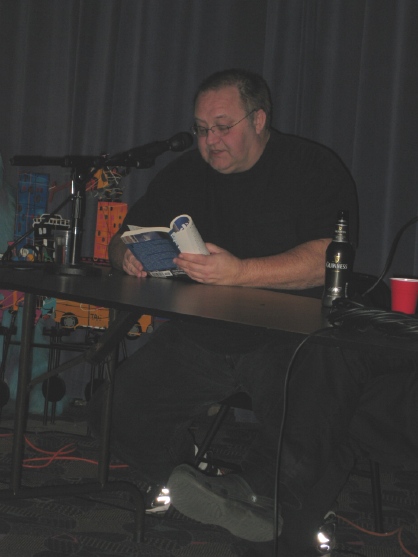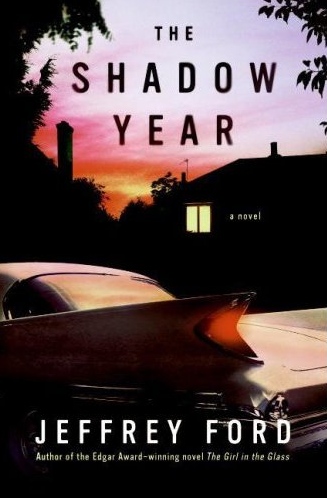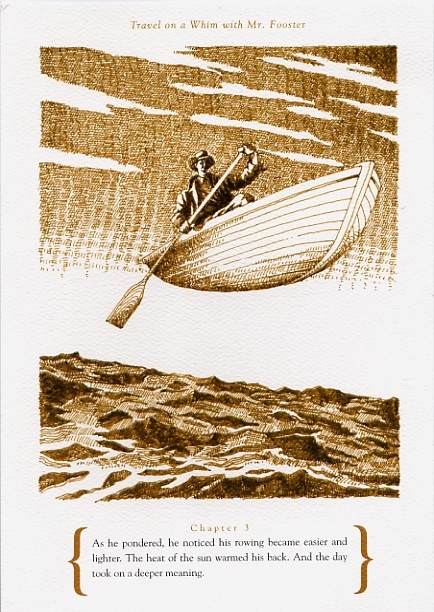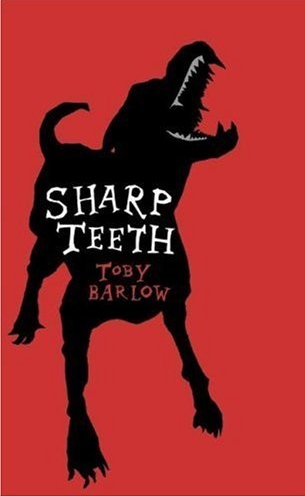|
|
|
|
This Just In...News
From The Agony Column
|
| |
|
03-28-08: Jamil Nasir Explores 'The Houses of Time' ; Agony Column Podcast
News Report : Terry Bisson, Jeffrey Ford and Tim Pratt
|
Dream House Conspiracy
|
Ah,
the ol' Photoshop special. Is it real or...? |
I'm one of the fortunate
few – I generally dont remember my dreams. When I do, it
can be quite disorienting. Sometimes it will take a few hours for me to
sort out the difference between my dreams and memories; I'll have to stop
and think, "Did that really happen?" It requires a conscious
effort to distinguish between the two. Many people rightly value their
dreams as an insight into the workings of their mind. I suppose I'd rather
not know.
Dreams are excellent fodder for fiction; you can simply use our own dreams
as a springboard for surreal fiction, or you can write about dreams and
dreaming, at which point you quickly enter Philip K. Dick territory. Jamil
Nasir is no stranger to the terra-non-firma of Philip K. Dick's
take on reality, and he takes readers on an extended tour in 'The Houses
of Time' (Tor / Forge ; April 1, 2008 ; $24.95), breaking down the barriers
between dreams and what passes for reality – as if reality itself
hasnt done enough to make the two indistinguishable.
No matter; in Nasir's novel, David Grant is the sort of bored, rich guy
one might hope to be run over by a bus, so his estate can go to a worthy
cause like the Trans Humanist Institute. I'm sure that James
Hughes could use the money. But Grant doesn't get to hook
up with the real-life runner of all things transhumanist. No, he gets
the much more ominously named Dr. Thotmoses, who trains him in the art
of lucid dreaming. Turns out that Grant is more than pretty good at it.
Not only does he rapidly etch out his own little dream world that he can
easily revisit. That would be just ducky. The problem is that the woman
of his dreams is showing up in his real life. For most of us, that would
be the icing on the cake, but as a lucid dreamer, Grant realizes that
something is wrong, either with his mind or the world. Occam's Razor would
suggest it's his mind; Thotmoses might suggest that Grant is some sort
of chosen one and that dreams are not enough – only religious saviors
are. Maybe Grant should have taken up sailing.
I like Nasir's prose and style. He keeps things sort of low-down and gritty,
so that any science fictional seams are well out of disbelief's way. Basically,
what you get is a plunge down the rabbit hole from when none of us might
escape. This is a genre unto itself, that "Is it real or is it Memorex?"
moment, and if you like that genre, then come on down, reality is just
as pliable as all get-out here. I can understand how some readers might
intensely dis-like this sort of fiction, but I find it bracing and entertaining,
because it lets the writer apply a direct layer of the fantastic to otherwise
mundane reality. It's a fine way to externalize internal conflicts and
bring the unsaid into the discussion. And what is fiction itself but a
directed, documented lucid dream?
|
Agony Column Podcast
News Report : Terry Bisson, Jeffrey Ford and Tim Pratt : Panel Discussion
at SF in SF, March 16, 2008
I wrap up coverage
of this month's SF in SF with the
complete panel discussion. Terry Bisson moderated Tim
Pratt and Jeffrey Ford, though perhaps moderated
isnt quite the right word. I'd say more like "egged on."
You have three smart, opinionated writers of speculative fiction who have
just heard three fine stories read (two from Pratt, one from Ford). You
set them loose to talk about anything they want to, and make sure that
youre not offended by the occasional profanity. Frankly, the profanities
are the least controversial things you'll hear at any SF in SF panel.
I made no
effort to elide them from the MP3 audio. Download and enjoy!
|
| |
|
03-27-08: (Un)Machiavellian
|
Reading 'The Prince'
for Fun and Prophet
|
How
to Trample Enemies and Manipulate People – not! |
Like many, I know
what the term "Machiavellian" means – but let's look at
the Oxford English Dictionary definition, just to be sure:
A follower of Machiavelli;
a person who adopts the principles recommended, or supposed to have
been recommended, by Machiavelli in his treatise on statecraft; a person
who practises expediency in preference to morality; an intriguer or
schemer. Usu. derogatory.
That's their italics – not mine. Thus, I was pretty sure what to
expect when a new translation of 'The Prince' (Modern Library / Random
House ; February 5, 2008 ; $8) translated by Peter Constantine
and with an introduction by Albert Russell Ascoli came
in; a treatise full of advice on how to be underhanded, and why you could
throw morals out the window. As I started reading, I told colleagues that
I had given up on the "How to Win Friends and Influence People"
model and was going with "How to Trample Enemies and Manipulate People."
At 116 pages, with lots of two- and three-page chapters, 'The Prince'
is pretty short and in this translation, easy to read. And it's nothing
like what youd expect.
If you expect that Machiavelli is without morals, if you expect something
difficult to read and dated, forget it. 'The Prince' is a toe-tapping
quick read, written in straightforward prose that gets to the heart of
how we manage affairs of state; not in the world of Platonic perfection,
but here on planet dirt. It's very funny, occasionally outrageous, written
from a moral core, as Machiavelli delineates the ways in which one must
behave if one is not to run afoul of the power of the people. Because
unless you're a prince who gets results, we'll toss you out of power.
 |
I was so taken by this
translation of 'The Prince', that I decided to do a little report for
my website; I'd talk to the translator and the scholar who wrote the introduction,
and cobble together a day's worth of podcasting out of a five hundred
year-old classic. 'The Prince' itself was a fascinating work; the more
I read, the more it seemed there was something for NPR here as well.
Here's
the link to my NPR story – when they post it on NPR.
I talked to Peter Constantine, the translator, Albert Ascoli, the Italian
Studies scholar, and even Dr. Katrin Their of the OED about Machiavelli
and the history of the word Machiavellian – turns out it was an
insult based on the content of 'The Prince' before 'The Prince' was available
in English. I'll be podcasting those interviews next week. In the interim,
when this story goes live, the reader can "Email this page."
I promise not to trample upon or manipulate anyone, and no, those are
not the soles of my shoes you see hovering above you.
|
| |
|
03-27-08: Philip K. Dick's 'Ubik: The Screenplay' ; Agony Column Podcast
News Report : Jeffrey Ford Reads at SF in SF
|
Reality TV
The first book I ever
read by Philip K. Dick was 'Ubik', recommended to me
as his best by none other than Stanislaw Lem in his essay,
"Science Fiction: A Hopeless Case–With Exceptions," from
his collection 'Microworlds'. If I'm not mistaken, it was this essay,
probably along with "Philip K. Dick: A Visionary Among the Charlatans"
that managed to get him kicked out of the SFWA back in the day. Why, asked
the SFWA, should we have one among us who hates all of us?
Well, maybe because he was right, if not because Lem was a great writer.
Bygones have gone – including alas, both Lem and Dick. Neither writer
has been particularly well served by the movies of late; the 'Solaris'
remake was an unmitigated disaster, and I frankly can't keep up with how
many crappy movies have been made based on Philip K. Dick's work. Actually,
the best Philip K. Dick movies are originals, not based on his work but
inspired by his vision; for example Eternal Sunshine of the Spotless Mind.
There's still a raft of Lem's work to be translated and re-translated.
Somebody needs to pony up and let Michael Kandel have a shot at translating
'Solaris' directly from Polish. Instead, we get movie tie-in reprints
of the substandard translation of translation.
As for Philip K. Dick, count on there not being anything to rival the
Underwood and Miller limiteds of The Complete Stories. I just went and
touched my set and I feel all better now. And more so, with Subterranean
exhuming 'Ubik: The Screenplay' (Subterranean Press ; August 2008 ; $35)
later this summer. One is tempted to hope that someone might make this
movie, as scripted here. But actually, reading the script is probably
going to prove a more rewarding experience. 'Ubik: The Screenplay' differs
from this book, and yet it's a pretty damn nice piece of writing. In fact,
a screenplay is not a bad format for telling any Philip K. Dick story;
and 'Ubik' is one of his best stories.
The précis is simple, and very Philip K. Dick. Joe Chip's just
an ordinary guy who meets an extraordinary demise, sudden, but not final.
In Dick's future, and we're not far from it, those one the edge of death
are placed into "half-life," where their consciousness continues
to experience "life" while their bodies rest on ice. Lots of
folks who get there know where they're going, but Joe blinks out in one
reality and wakes up in another without noticing the discontinuity. Until
things start to get weird.
In Dick's novel, the chapters start with a variety of weird little advertisements;
in the screenplay, you get to see and hear those advertisements:
"COMMERCIAL: (Old-time announcer) This
message brought to you by Preparation U, whose motto is: "It's bitchin'
to be itchin'." NBC chimes follow)"
|
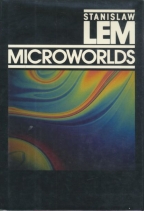
|
An exit. |
Can you imagine? Can
you just effin' imagine? Well, no need to imagine any more; Sub
Press has it all here for you in glorious black and white TEXT, yes TEXT.
How much more real can you get? Well, you can get your brain wrapped around
a cleaner, leaner meaner take on all your favorite 'Ubik' characters,
and just imagine the Runciter dollars – to die for. Tim Powers,
who spent a lot of quality time with PKD back in the Santa Ana days, provides
the introduction. Sub provides the pristine production values. And Philip
K. Dick is capable of undermining your reality no matter what the format.
Curious? I suggest springing for Lem's fine 'Microworlds' to see just
how well-received PKD was by the SF establishment of his time. Funny how
these things change, how reality is so easily undermined by tomorrow.
|
Agony Column Podcast
News Report : Jeffrey Ford Reads at SF in SF : 'The Drowned Life'
After a brief stop
to podcast all the Toby Barlow support interviews, we're back with more
material from the last SF in SF meeting
on March 16, 2008. This time I have the unexpurgated reading of "The
Drowned Life" by Jeffrey Ford. He actually stopped partway through
the story and asked if we wanted him to continue – as if there would
be any question. And I must add that this story is one that is particularly
near and dear to the heart of someone who did a story for NPR about "Economic
Genre Fiction". There's no anxiety like financial anxiety. Ever feel
like you're drowning in bills? Then
this is your story –in a downloadable MP3 file. Next time, just
show up and experience the reading live. Comfortable seats, beer and wine,
great writers; it doesn't get much better than SF in SF.
|
| |
|
03-26-08: Jeffrey Ford Lives Through 'The Shadow Year' ; Agony Column
Podcast News Report : A Brief Interview With Jeffrey Ford
|
Autobiographical
Fantasy
|
Heavily
treated photograph, not a painting. |
American fantasy is
a peculiar beast, with traditions that run strong. We have the Tall Tale,
the campfire ghost story and the fantasy memoir. At first glance, this
last category doesn't quite scan. How can a memoir, in theory a story
of fact, include that which is decidedly not factual? The reverse question
is probably equally smart. After all, memory is itself a form of fantasy,
the story we tell ourselves about our lives. Once we accept the contradiction,
we can start to look at the literature. Ray Bradbury once treated us to
'Dandelion Wine' in his languorous prose of long shadows and paradoxically
warm nights. Robert R. McCammon explored 'A Boy's Life'. These novels
share a sort of wistfulness, a warm affection for the past, a perception
of a world still malleable when seen with the eyes of a young protagonist.
Now Jeffrey Ford joins the ranks of those taking us back
to our younger, more fantastic selves with 'The Shadow Year' (WM Morrow
/ HarperCollins ; March 11, 2008 ; $25.95), based on his novella 'Botch
Town,' which first showed up in the Golden Gryphon collection 'The Empire
of Ice Cream.' All the elements of the classic American fantasy are there;
the small town, the precocious, pre-teen protagonist, the long fall, and
the element of magic in the air. In this case, it's Botch Town, a cardboard
replica of the small town built by the nameless narrator and his brother
Jim. It seems that when their little sister Mary moves things around in
Botch Town, corresponding movements occur in reality as well. Reality
is being re-arranged and the outcome is likely to be as painful as growing
up.
Stylistically, Ford has been heading for this novel for quite some time.
He didn't always write in this sort of romantic, nostalgic manner. 'The
Physiognomy' is quite fantastic from the get-go, and rather angular in
terms of prose. Even the period-set 'The Girl in the Glass' has a pretty
spiky crime story embedded within the narrative. Now this is not to say
that 'The Shadow Year' is without shadows or spikes; but the drive here
is that of the bildungsroman, the classic boy-grows-up novel. In fact,
Ford explicitly stated at SF in SF that this is an autobiography –
a life of the mind.
As such, 'The Shadow Year' is perhaps Ford's most eloquent work yet. And
as a Jeffrey Ford novel, it's on the auto-buy list by any measure. Though
the poignancy of owning a first printing, first edition is not to be underestimated.
The problem with books like this as investment is that the books themselves
become part of the story of our lives, a part of our autobiography. Paradoxically,
other people's words become illustrations in the stories we tell ourselves
about ourselves.
|
Agony Column Podcast
News Report : A Brief Interview With Jeffrey Ford : SF in SF, March
16, 2008
We're finishing up
the week's podcasts with the rest of SF in
SF from March 16. Today, in keeping with the look at Ford's new must-buy
novel, I'm running the brief interview I did with him at SF in SF. Again
not epic, but terse and to-the-point, as well as enhanced by the ambience
of the fine Variety Children' Theater crowd. Your best bet for a night
of science fiction is in SF – not in front of the TV. Here's
a link to the MP3 of the interview; and another audio painting in
my own sprawling audio-biography.
|
| |
|
03-25-08: Tom Corwin and Craig Frazier Send 'Mr. Fooster Traveling on
a Whim ; Agony Column Podcast News Report: A 2008 Conversation with
HarperCollins Editor Jennifer Barth
|
Hey Babe, Take
a Walk on the Whimsical Side
|
Pretty
bitchin' production values – required! |
What hath he wrought?
Art Spiegelman is considered by most to be the man who first applied the
term "graphic novel" to his work. Here we are some mumbly-mumble
years later and it's practically raining graphic novels, or in the case
of 'Mr. Fooster Traveling on a Whim' (Flying Dolphin Press / Random House
; June 10, 2008 ; $14.95) by Tom Corwin and Craig
Frazier, "visual novels." And this is a good thing,
so long as you're in the mood for whimsy.
Mr. Fooster is a guy like any other guy, except that he travels with one
of those little bottles of bubble-making soap that come with a ring to
blow bubbles. And once you know he's that sort of fellow, you can imagine
that on a day he wanders off to do nothing in particular, he ends up doing
a great deal of interest to students of whimsy and the surreal. He pokes
about a gentle English-style country landscape looking at things, communing
with nature and asking questions he probably doesn't remember hearing
Stephen Wright ask in one of his many whimsical comedy routines. It could
all get just a little bit on the precious side, but Tom Corwin has the
good sense to collaborate with Craig Frazier. Frazier turns in some "visuals"
for the "novel" that take it well beyond whimsical, or at least
into Whimsical Pro territory. Theyre gorgeously done and nicely
printed.
At 100 pages consisting mostly of pictures, calling 'Mr. Fooster Traveling
on a Whim' a novel is a bit of a stretch, and thus it gets a Visual tag.
Here's what this book is perfectly designed for. Let's just say you have
a day, upon which you have maybe a lot to do or maybe a little to do,
and instead you decide to do like, nothing at all. But not just nothing,
instead, something that required the effort of nothing but yields the
result of something, well, whimsical. This then is your book. Reading
this book on the back porch over the course of sunny afternoon while napping
and warming one's self in the springtime sun will pretty much re-create
not for but within you the feelings it describes. Some of us have an allergy
to this sort of whimsy no less severe than some folks' allergies to bloomin'
spring flowers. Those people should curl up with a curmudgeonly second
reading of Niccolo Machiavelli's 'The Prince.' Warmth comes in many forms;
but generally, shorter is better.
|
Agony Column Podcast News Report: A 2008 Conversation with HarperCollins
Editor Jennifer Barth : Return to Sender
That's about as much
as youre going to get out of HarperCollins should you try to submit
a manuscript to them sans agent. Agents are not the first step in getting
published, nor are they the last. Neither is Jennifer Barth;
but you'll hope she's on your side should you ever get lucky enough to
achieve publication.
I talked with Barth actually before I talked with Toby Barlow. Her insights
into the world of publishing will give anyone hoping to understand the
nuts and bolts of getting published an insider track. She edits Michael
Chabon as well as Toby Barlow and others. She's clearly one of the top
editors out there, so the very fact that she edited ''Sharp Teeth' should
tell you something about the book as well as the editor. Here's
an MP3 that may tell you things you dont want to hear – but
need to hear if you plan on getting published. And if you just wanted
a down-to-earth, startlingly clear vision of life at a venerable NY publishing
firm, this is your ultimate insider – frank, smart and sophisticated.
Barth is as much fun as the books she edits and every bit as sharp. Not
surprisingly, 'Sharp Teeth' require a sharp editor.
|
| |
|
03-24-08: A 2008
Conversation with Toby Barlow
|
'Sharp Teeth'
First-time book writers
face enough hurdles getting published. The environment in the world of
New York publishing makes a shark-feeding frenzy look like a slumber party.
The competition for agents, for publishing slots, for shelf-space and
standee selection is positively presidential. Well maybe negatively, but
you get the idea. If youre a first-time writer, what better way
to tie an anchor around your neck than to write your first novel in free
verse?
Of course, like many first-time novelists, Toby Barlow had no notion of
getting published before starting his book 'Sharp
Teeth'. He was merely writing about something that interested him
– a love story about werewolves in LA. When he sat down, his book
started coming out in free verse. I've
posted the review and you
can go to this NPR web page and use the Email This Story button to send
the link to the hundreds of people you know who need to read a novel written
in free verse.
One you've heard the précis, you
can download the full-length MP3 version of the interview. Barlow's
an interesting guy, as you might guess. And his journey from the river-view
creation of the novel to the final product is typically atypical. From
the wild dogs of LA to the art galleries of New York, this is a very strange
story, strange enough to give the novel that results a run for it's money
– though I'd have to say, it's pretty good question as to what is
more improbable – werewolves in love in LA or 'Sharp Teeth', a novel
in free verse about werewolves in love in LA. Since the novel came into
reality, who's to say that the werewolves aren't already on the prowl?
|
| |
|
|
